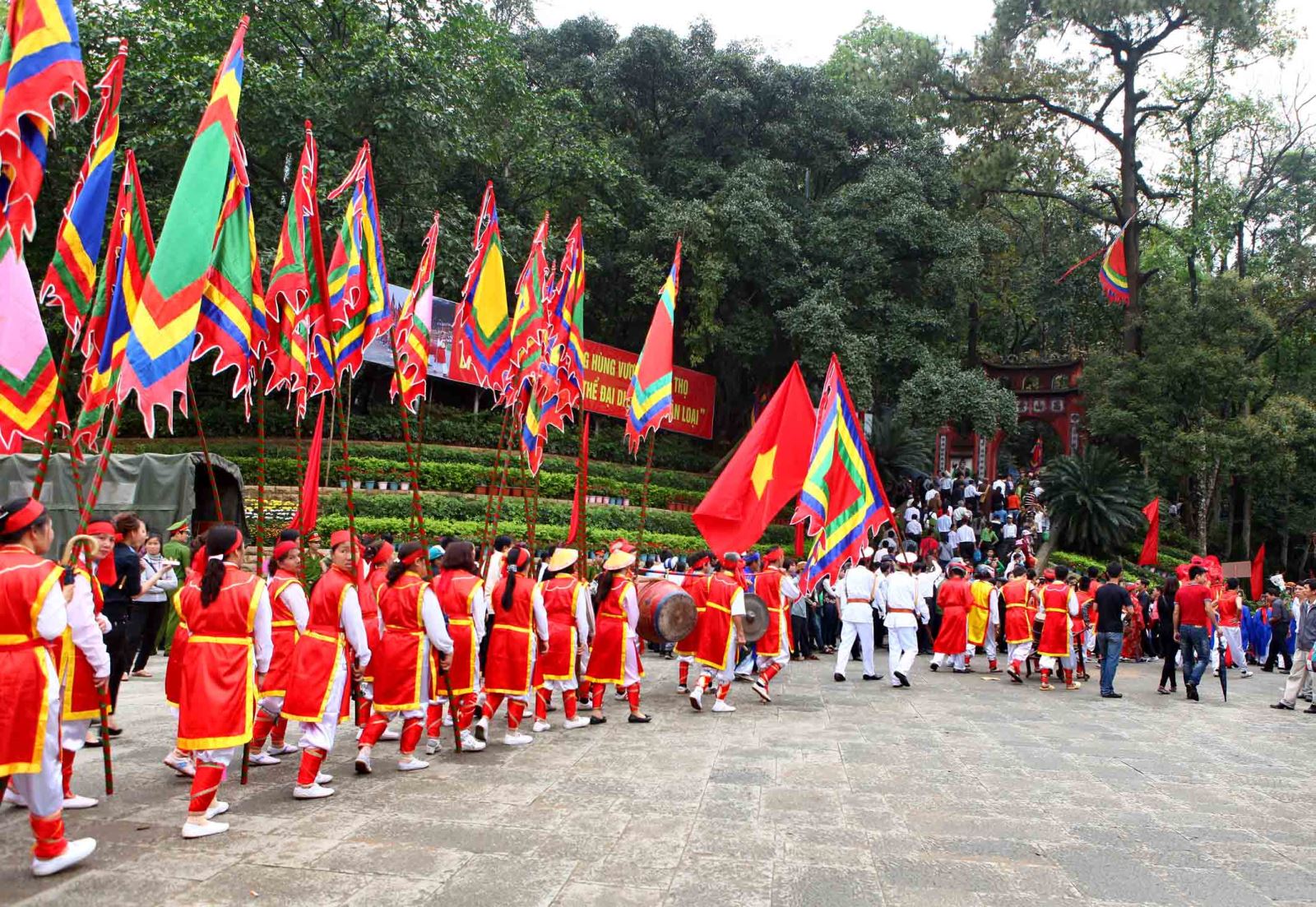
The opening ceremony for the 2019 Hung Temple Festival began at 7.45pm on April 12 at Hung Vuong Square, Viet Tri city, in northern Phu Tho province, starting a three-day festival from April 12 to 14 commemorating the Hung Kings, who were the founders of the nation and its first emperors.
Various activities were held during the opening ceremony, such as folk performances, traditional dances, and a low-level fireworks display. Prior to that, on the morning of April 12, a contest on making “Banh chung” (squared sticky rice cakes) and pounding “Banh day” (Vietnamese mocha cake) to honor the Hung Kings was organized, with the winner to prepare “Banh chung” and “Banh Day” for offerings to the Hung Kings at next year’s commemorative ceremony.
Also known as the Hung Kings’ death anniversary, the Hung Temple Festival has many new features this year. The ceremony includes six main activities, in which the incense offering ceremony for the Hung Kings was carried out simultaneously in Thuong Temple and other historical relics throughout Phu Tho province, where the Hung Kings and their generals will be worshiped early on the morning of April 14 (the tenth day of the third lunar month).
Along with the incense offering ceremony, Phu Tho called on every family to prepare their own food, called “gratitude dishes”, to commemorate and honor the nation’s ancestors, and then worship as blessings are made at Thuong Temple early on the morning of April 14.
The Hung King’s death anniversary was first commemorated in 1917. On April 2, 2007, the National Assembly approved an amendment and supplement to Article No. 73 of the Labor Law, making the day a public holiday.
The Hung Temple Festival is an opportunity to educate people on the Vietnamese tradition of “Remembering the source of the water”, expressing their deep gratitude to the Hung Kings, who built the country, and other ancestors who fought against foreign invaders. It is also an important occasion to promote the tourism industry and introduce to the world a unique intangible heritage that has existed for thousands of years in Vietnam.
